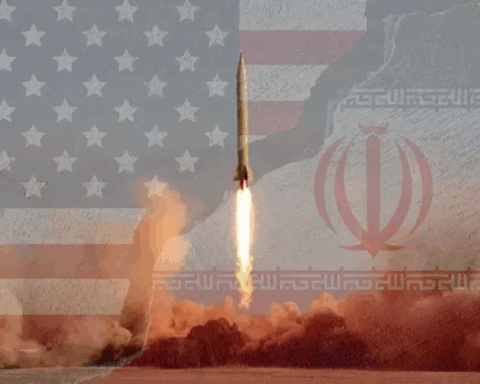As the United States reduces its military footprint in Syria, a new balance of power is emerging in the Middle East. Israel, long reliant on American military presence and political support in the region, now faces a pivotal question: Can it act alone against Iran?
A Strategic Withdrawal
The U.S. Department of Defense recently announced plans to reduce its troop numbers in Syria to below 1,000. While framed as a “deliberate and conditions-based” decision, the move signals a shift in Washington’s engagement. For Israel, this is a worrying sign. The reduction of U.S. troops means fewer deterrents against Iranian influence and greater room for regional actors like Turkey to expand their role.
According to Israeli media, Tel Aviv lobbied Washington to maintain its presence in Syria but failed. Israeli officials now fear that this vacuum may embolden countries like Turkey, altering the strategic status quo.
Israel’s Iran Doctrine
Israel has long viewed Iran as an existential threat. Following the October 7 Hamas attack and months of military operations in Gaza, Israel’s focus has shifted toward neutralizing Iran’s regional influence. Tel Aviv has targeted Iranian proxies like Hezbollah in Lebanon and conducted multiple airstrikes in Syria.
But direct action against Iran is a different matter. While Israel possesses the military capability for limited strikes, such an operation without U.S. support would be logistically complex and politically risky. Iran’s network of regional militias—like Hezbollah and Iraq’s Hashd al-Shaabi—could retaliate across multiple fronts.
The Trump Factor
Former President Donald Trump’s foreign policy centered on scaling back U.S. involvement overseas. He emphasized domestic priorities and promised to end America’s “endless wars.” In his words, what happened across the ocean should no longer be a priority.
This shift in American focus has left Israel in a difficult position. While the U.S. still considers Israeli security a cornerstone of its Middle East policy, the kind of military backing Tel Aviv enjoyed in past decades is no longer guaranteed.
Turkey’s Expanding Role
As the U.S. pulls back, Turkey is stepping forward. Ankara’s insistence—voiced clearly by Foreign Minister Hakan Fidan—that American troops in Syria are more of a hindrance than a help reflects a broader ambition. Turkey sees an opportunity to shape the post-war Syrian landscape, especially as Iran’s influence appears to wane.
This shift raises alarms in Tel Aviv. A stronger Turkish presence, coupled with American disengagement, could marginalize Israel’s strategic leverage.
What Would a Lone Strike Mean?
Could Israel strike Iran without U.S. coordination? Technically, yes. Strategically, it’s far more complicated. Without U.S. air support, intelligence coordination, or diplomatic backing, any attack would expose Israel to overwhelming retaliation and international backlash.
Moreover, Washington might actively oppose such a move, fearing that it could destabilize the region and drag U.S. assets into conflict.
Conclusion
Israel has the means, but not necessarily the diplomatic cover, to strike Iran independently. Its best course remains one of coordination—securing U.S. support either openly or tacitly. As the Middle East enters a new phase with evolving alliances and uncertain commitments, unilateral action against Iran would be a high-stakes gamble, not just for Israel, but for the entire region.
- Trump’s Houthi Statement: Peace Offering or Strategic Retreat? - May 6, 2025
- Turkey’s New Path: London or Washington? - May 6, 2025
- Opinion | The Pentagon’s Star Trim: A Bold Move or Bureaucratic Theater? - May 6, 2025








